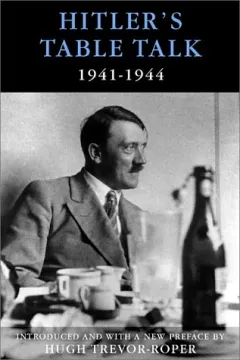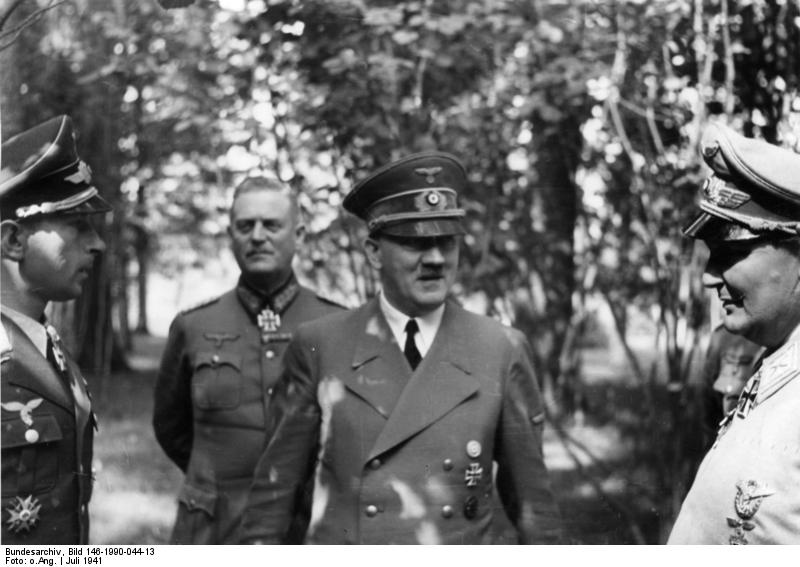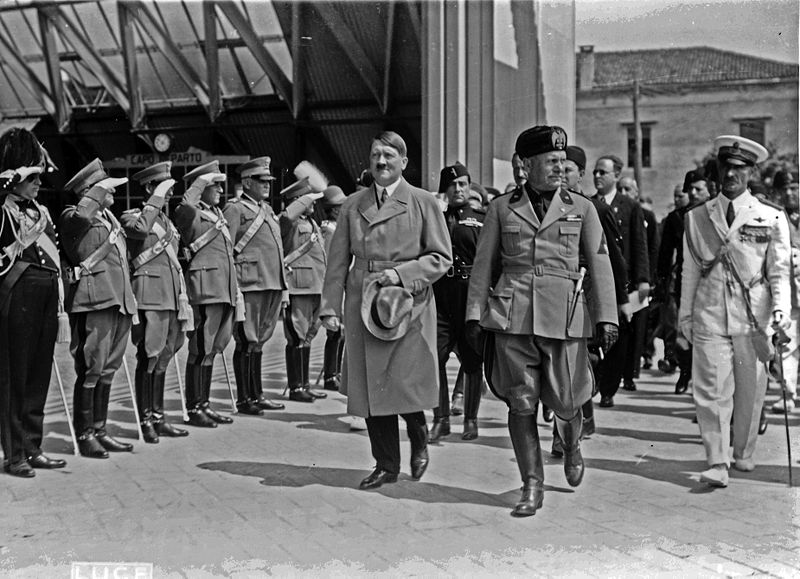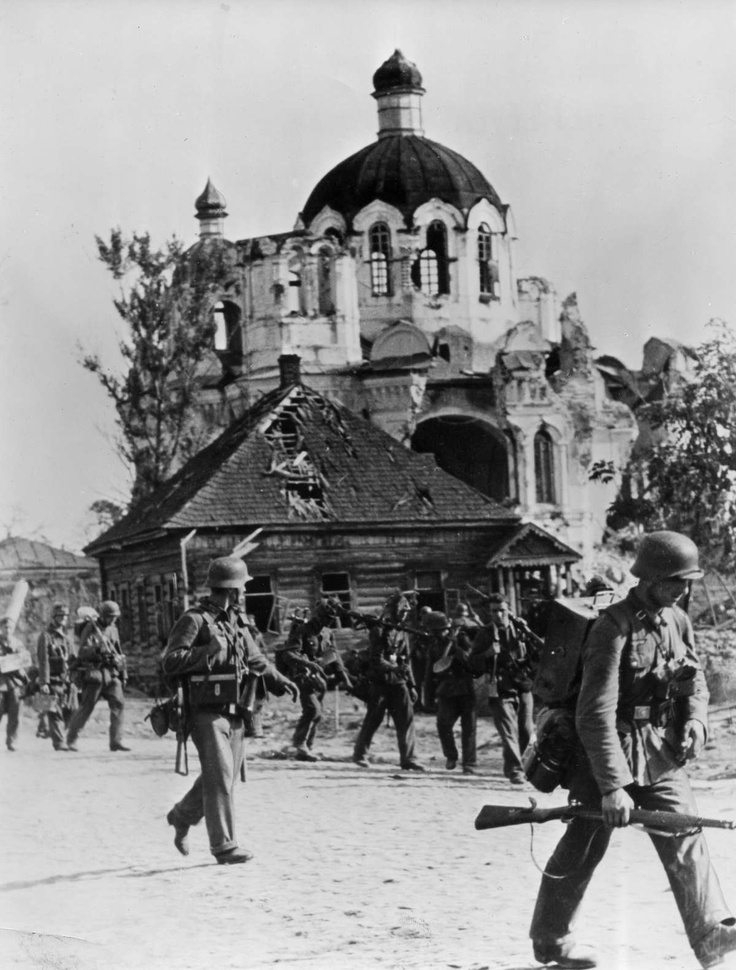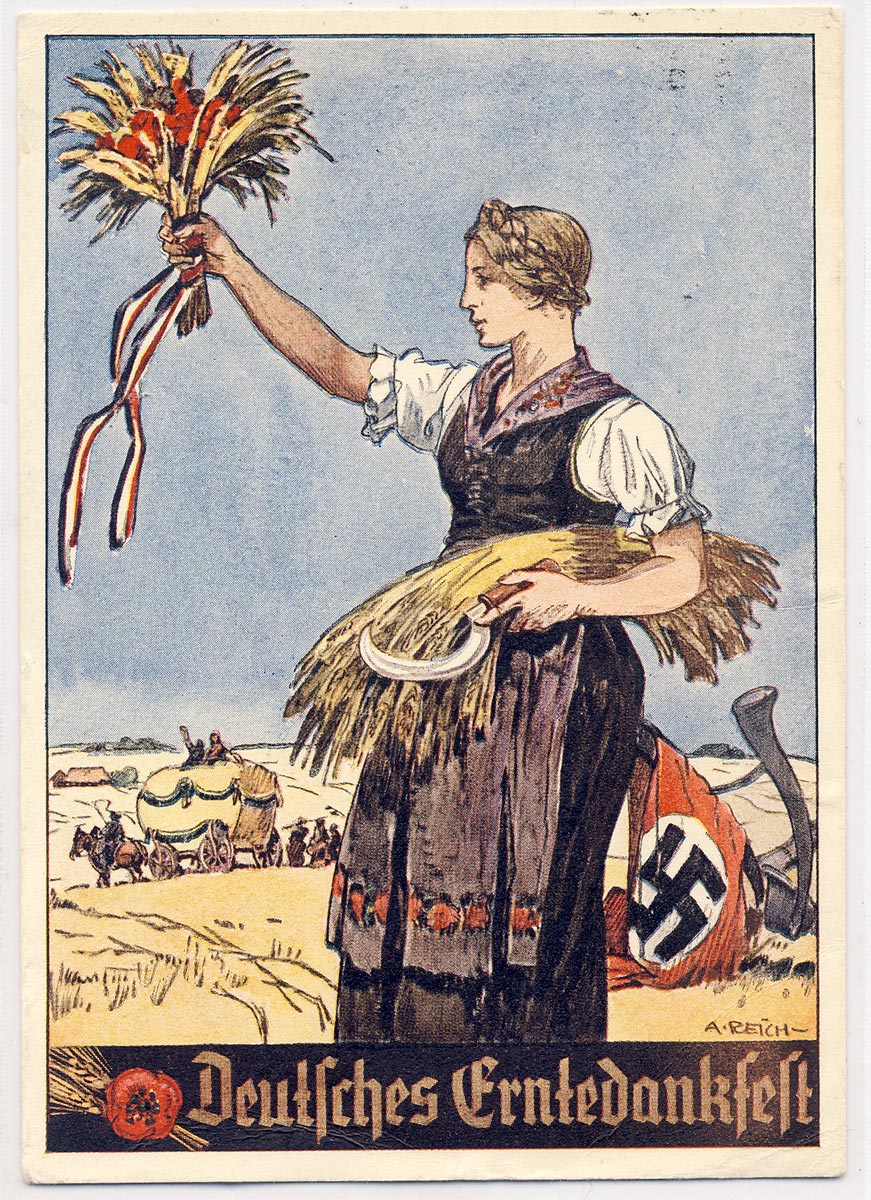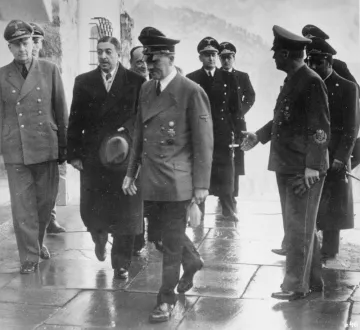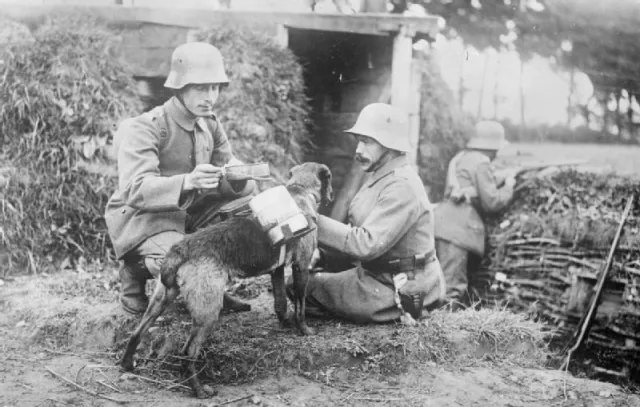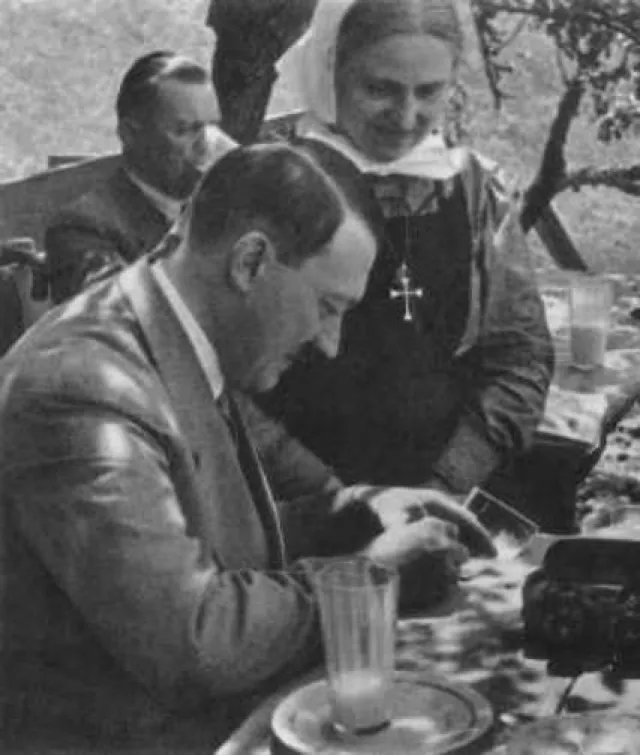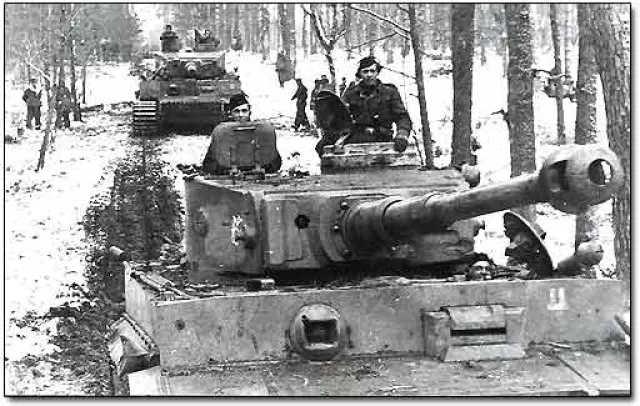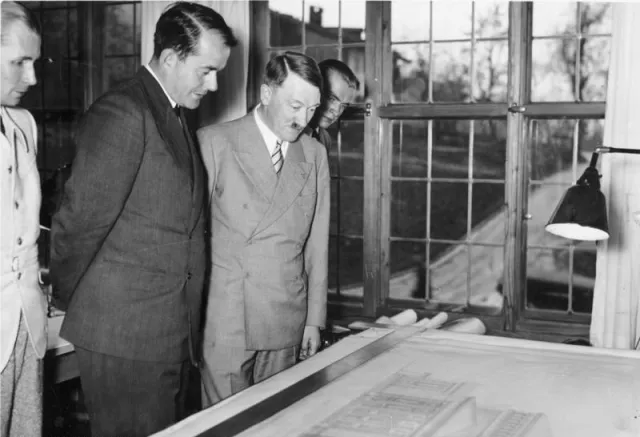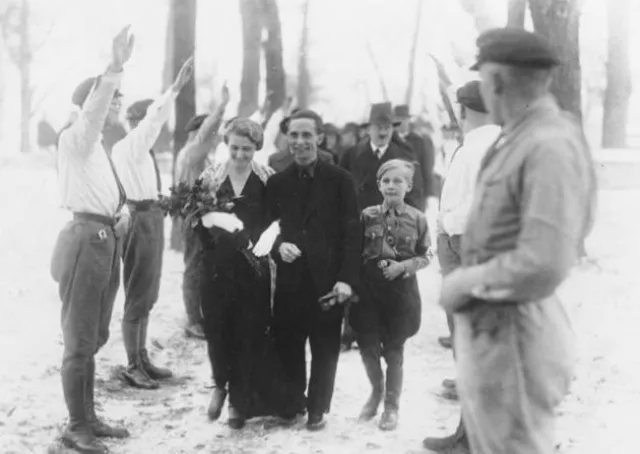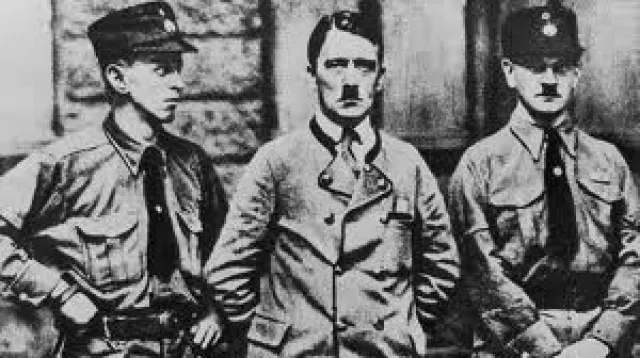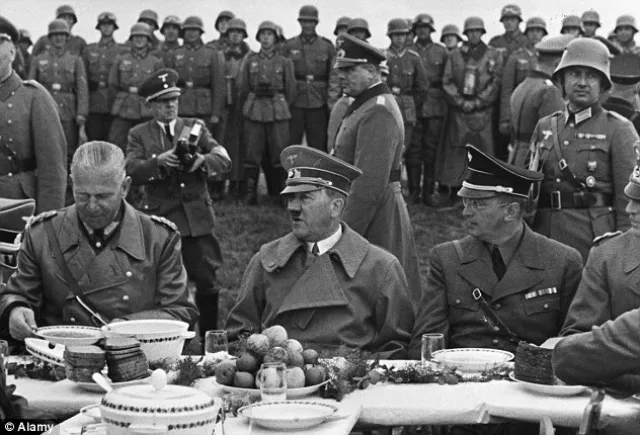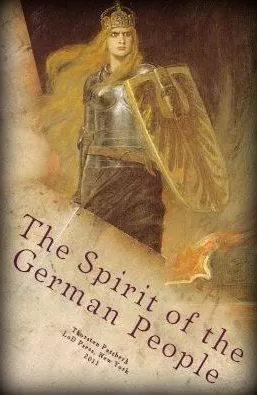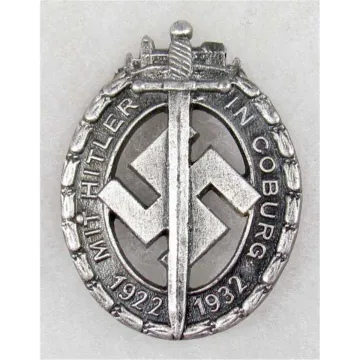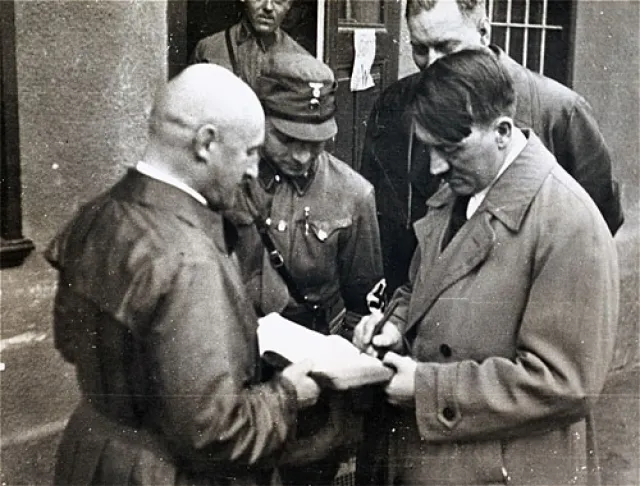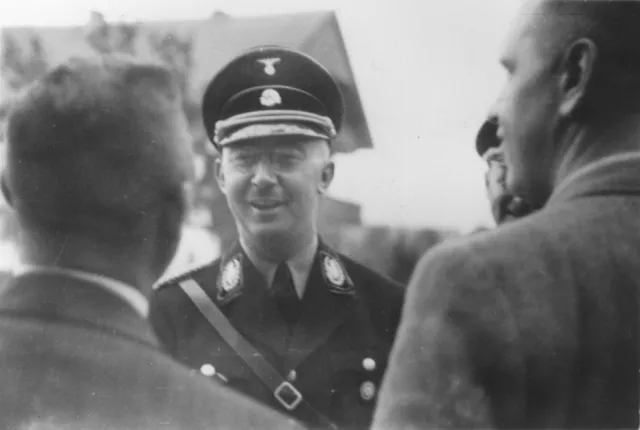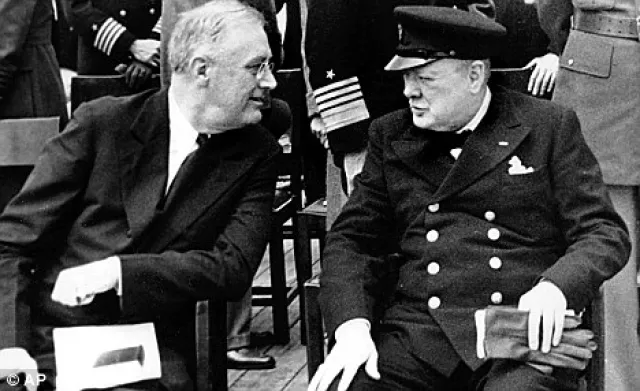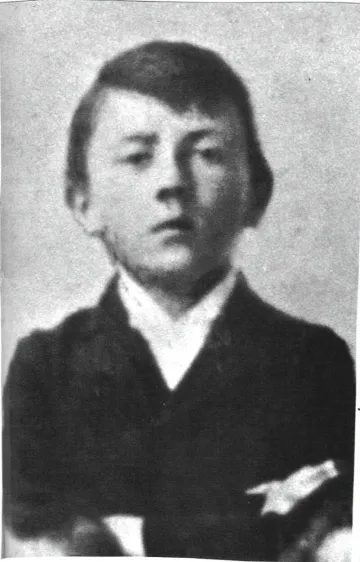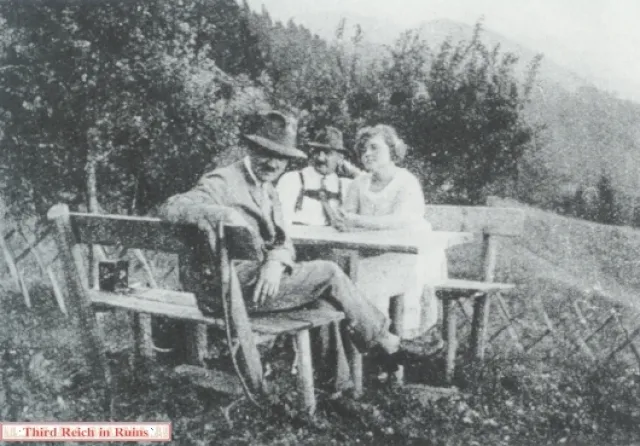"Hitler's Table Talk" Study Hour: Introduction - Episode 1
March 6, 2014
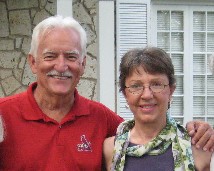
Carolyn Yeager and Ray Goodwin use their first program to introduce listeners to some background information on this collection of what are basically after-lunch-or-supper monologues by Adolf Hitler in the company of his intimate circle. 52m
- How trustworthy is this text, since Martin Bormann assigned two of his aides to take the notes during meals, then turn them over to him for checking and safekeeping;
- Why it is valuable to study this book;
- Questions about the translation and translators – for example, did Francois Genoud tamper with the parts about Christianity;
- Of those offended by this book, Christians are #1 on the list, complaining that it does not agree with Hitler’s “public record” of positive remarks about Christianity in earlier years;
- David Irving and Albert Speer both confirmed that these recorded talks are authentically Hitler; Richard Carrier disagrees;
- Next week we’ll begin reading the text.
The edition being used was translated by Norman Cameron and R.H. Stevens, published by Enigma Books, New York, and can be found as a pdf here.




